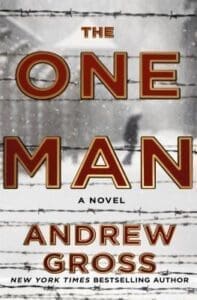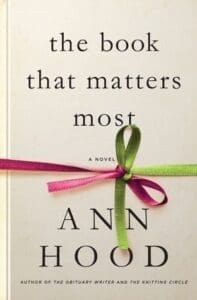Mischling by Affinity Konar– 344 pages
Book Blurb:
Pearl is in charge of: the sad, the good, the past.
Stasha must care for: the funny, the future, the bad.
It’s 1944 when the twin sisters arrive at Auschwitz with their mother and grandfather. In their benighted new world, Pearl and Stasha Zagorski take refuge in their identical natures, comforting themselves with the private language and shared games of their childhood.
As part of the experimental population of twins known as Mengele’s Zoo, the girls experience privileges and horrors unknown to others, and they find themselves changed, stripped of the personalities they once shared, their identities altered by the burdens of guilt and pain.
That winter, at a concert orchestrated by Mengele, Pearl disappears. Stasha grieves for her twin, but clings to the possibility that Pearl remains alive. When the camp is liberated by the Red Army, she and her companion Feliks–a boy bent on vengeance for his own lost twin–travel through Poland’s devastation.
My Review: 5 stars
Yes, Mischling is a story about the Holocaust and the atrocities that took place in Mengele’s Zoo, but at its heart it’s a book about twins. The love and naked connectedness they feel toward one another was rendered so beautifully in this book. I look forward to hearing the opinions of twins after they’ve read this book.
It’s hard to give a high rating, yet alone my highest one, to a book with such horror in its midst. I am a quick reader but this book had me pacing myself as its content, although never outwardly graphic, gave enough details to let my imagination run free. The writing was poetic yet cold, lyrical yet sharp, simple yet meaningful.
Mischling is a term used to characterize those who bore both Aryan and Jewish blood. So in this novel, these twins were not just special for their sameness, but doubly so, with their blond hair, blue eyes and Jewish blood. Being in the zoo seemed to be a means of survival due to the special treatment, but certainly the survival came at a devastating cost.
The book followed the idea of coupling, twinning and duality in many ways. There were two POVs, two parts of the book, two Zoos, and most spectacularly described were the separation of coping for the girls. Stasha would take the funny, the future, the bad. Pearl would take the sad, the past, the good. Utterly brilliant. The themes also followed in this way. Good vs. evil, imagination vs. reality, fortitude vs. helplessness, death vs. deathlessness.
Their oneness within them was their superpower for survival, along with their wondrous imagination. Without the other, neither would be whole and this was proven so many times throughout the book. I highly recommend this book especially if you liked The True Story of Hansel and Gretel or The Book Thief. Thank you Affinity Komar for this story.
Quotes I liked:
Everyone survived by planning. I could see that. I realized that Stasha and I would have to divide the responsibilities of living between us. Such divisions had always come naturally to us, and so there, in the early-morning dark, we divvied up the necessities: Stasha would take the funny, the future, the bad. I would take the sad, the past, the good.”
-Such darkness should make life impossible, I know. But my other part? It was wild hope. And no one could extract or cut or drain it from me. No one could burn it from my flesh or puncture it with a needle.
-“Auschwitz never forgot me. I begged it to. But even as I wept and bargained and withered it took care to know my number, and to count every soul that it claimed. We were so innumerable, we should have overwhelmed this land beneath us into nothingness. But this patch of earth would not be overwhelmed. Some claimed that we might overwhelm it when we fully understood its evil. But whenever we began to understand evil, evil itself increased. Others believed that hope might overwhelm it. But whenever hope flourished, so did our tortures.”
-“Tell me,’ she said, her eyes trailing the fly’s escape over the fence and into the fields, ‘what does it feel like – to be of value?’”
-“I was put in that cage because I loved too much. I had a great bond with someone, a connection much envied by this man. He was cold and empty and he could not form attachments, not with his family or wife or children.”
-“I’d noticed that animal life had become increasingly rare in Auschwitz. There was little hope of any arriving just because I wanted it to, and when no bird appeared, I put one there with my mind. In its beak, I made it carry a sprig of olive branch. But the bird kept dropping it. Even my own imagination, it seemed, had abandoned me.”















